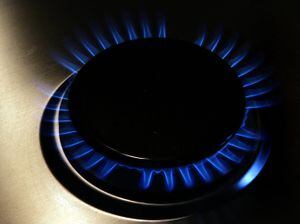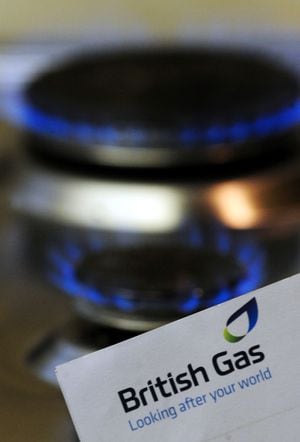To switch or not to switch? Gas is the question
As we swap summery cocktails for cosy cocoa, there is no time like the present to hunt out a better energy deal and put pressure for change. on providers

What a difference a few weeks makes. A couple of months ago we were basking in a record-breaking heatwave, now there is a definite chill in the air.
In a few weeks, it will be time to switch the central heating back on. Some may have already given in to temptation.
It is no coincidence that the major energy suppliers announced their latest price hikes during the sizzling summer, when the cost of heating the house was far from the thoughts of many who were more preoccupied with their holidays than heating bills.

From October 1, 3.5 million British Gas customers on the standard variable tariff will see their prices rise by 3.8 per cent. This is on top of a 5.5 per cent increase in April this year, which energy minister Claire Perry branded 'unjustified'.
Alex Neill, of consumer organisation Which? says latest increase will mean the average bill for a British Gas customer has risen by £180 over the past 13 months, but the company is by no means the only culprit. At the end of May, SSE increased its standard variable rate by 6.7 per cent, meaning an average customer pays an extra £76 a year, while rivals Npower, EDF, ScottishPower and Bulb have all increased prices, blaming higher wholesale gas prices.
Shropshire Star comment:
That's the bad news. On the positive side, many will be pinning their hopes on the Government's pay cap, which comes into effect at the end of December, and will set a limit on prices until 2023. Hopefully, this will mean the end of the customary inflation-busting price hikes that we have become so familiar with in recent years.
So does that mean we do not need to worry about energy prices any more?
Not quite. The advice of the experts is that if you are serious about reducing how much you pay for your energy, don't wait for the Government – but look at changing your supplier now.

Ms Neill says while the cap will make a major difference for those on the least competitive tariffs, most people will still be able to save considerably more by switching supplier.
As of October 8, the most expensive of the 'Big Six' suppliers is Scottish Power, which charges £1,257 a year based on typical energy use of 12,000kWh for gas and 3,100kWh for electricity.
The cap will cut this to £980 – a reduction of more than 22 per cent, which will come as a welcome relief to Scottish Power's customers. But switching to the cheapest tariff on the market will see the same user's bills fall to £859 a year, a saving of 32 per cent.
She says: "We would recommend that customers on poor value deals switch immediately. If you switched to the cheapest deal on the market, from the priciest Big Six standard variable tariff, you could save £398 per year.
"We'd still strongly encourage switching once the cap takes effect but there is little reason to delay."
But Ms Neill says the price cap should not be seen as anything more than a temporary fix, and the real solution will only come with a radical overhaul of the market.

"Regulators and the big providers should now press ahead with reforms to create real competition, promote innovation and improve customer service," she says.
Ms Neill says British Gas's recent rise represents a significant financial hit for many households.
While the cap will help many people the real problem is that there is still a lack of effective competition in the market.
According to a survey last year, 62 per cent of people are paying an average of £180 a year more than they should be simply because they fail to shop around.
This is all a far cry from the hopes of energy regulator Ofgem when it lifted price controls from the market in 2001. Back then, the idea was that, having broken the old British Gas monopoly, and allowing the old former regional electricity companies to fight for the same business, the different suppliers would compete to offer lower prices.
Obliged
But mergers between many of these smaller companies, combined with people's reluctance to switch suppliers, has meant that far from creating a cut-throat market, the energy giants have been able to increase prices with impunity. In many respects, the introduction of the new price cap is like turning the clock back to the 1990s.
While turkeys rarely vote for Christmas, gas and electricity companies are now obliged to advise people that they may be able to save money by switching to cheaper deals. Neill is unconvinced that this is working.
She says: "If energy companies were doing a better job of telling people about the hundreds of pounds a year they could be saving by switching to the cheapest dual fuel deal on the market, I’m sure many more would be doing it.”
The cap itself is not without controversy. Many commentators have suggested that some of this year's price rises have been a case of the energy companies 'getting in first', before the cap comes into force. And there are others who argue that the companies will simply jack up the prices of the cheaper tariffs to compensate. Which, in turn, could mean that the benefits of switching suppliers could be less pronounced in years to come.
But for now, the message is clear. If you are on a standard variable tariff, shop around for the best deal and do it now.





